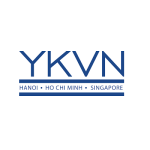Over the last decade, the Vietnamese M&A market has moved in lockstep with the economy's high growth rates. The signing of free trade agreements in 2020, such as the EU-Vietnam Free Trade Agreement and the Regional Comprehensive Economic Partnership, as well as the implementation of China Plus One strategies by multinational corporations, have all been growth talking points.
In 2018 and 2019, the consumer goods, manufacturing and real estate sectors recorded important M&A transactions in Vietnam. In 2020, banking and real estate were the key sectors for M&A transactions.
There is strong activity in both private and public M&A, with both providing blockbuster deals in Vietnam during 2020. Naturally, there are more private M&A transactions, and listed companies help drive private M&A activity.
A consortium led by US private equity (PE) powerhouse KKR made a US$650 million investment into Vinhomes, the flagship real estate subsidiary of Vingroup and listed on the Ho Chi Minh Stock Exchange (HOSE), for an approximate 6% stake. The deal, in which YKVN acted as local counsel for Vingroup, witnessed a strong willingness of foreign investors to sit in minority positions in large Vietnamese companies. PE investment has been at lower values and rare in listed companies, so this investment therefore generated much interest regarding the future role of PE in headline public M&A transactions.
Another significant deal, also involving YKVN, was the acquisition by Masan Group of Vincommerce and VinEco, the retail and agricultural businesses of Vingroup, with Vingroup remaining in a minority position. This involved a series of complex equity swap and corporate restructuring transactions. The complex nature of the transaction illustrated that domestic deals of such technical nature can be expected and executed as Vietnamese organisations continue to grow. The deal generated significant public discussion regarding the positioning of major domestic players.
COVID-19 and recovery plans
As a result of the COVID-19 pandemic, Vietnam's economy grew by only 2.91% in 2020 – though it became one of the only economies to have shown any growth at all. Mirroring this lower growth, total deal value experienced a decrease. Although declines were widespread, the tourism sector suffered the most. Sectors that mustered growth include (i) industry and construction; (ii) real estate, agriculture, forestry and fishery; and (iii) services. As a whole, Vietnam's exemplary handling of the pandemic has enhanced its image as an investment destination and, on a country comparative basis, M&A deal flow has great prospects.
Foreign investors usually make use of ordinary shares, convertible loans and convertible bonds while use of preference shares is less common. Due to foreign exchange regulations, instruments are considered when making investment in Vietnamese dong rather than foreign currency. Convertible loans are more commonly denominated in foreign currency than convertible bonds. An investor's choice in use of convertible loans, convertible bonds and preference shares is driven by the equity/debt classification of the instrument. As investors usually benchmark against US dollars, foreign exchange indemnities are becoming more common.
|
|
Vietnam’s economy grew by only 2.91% in 2020 – though it became one of the only economies to have shown any growth at all |
|
|
Despite a depressed market, deal structures have not changed significantly. This could be attributed to less distressed assets than other markets. Nevertheless, investors have been more careful in this new market condition and there has certainly been greater negotiation of material adverse change (MAC) clauses to cater for COVID-19 related risks. Specific indemnity and post-closing price adjustments have also become more common.
Historically, PE and investment funds have not participated in larger sized deals. However, recent activity indicates that this trend may be reversing. The US$650 million investment by KKR in Vinhomes is a testament to this trend. A slight increase in shareholder activism and disputes has been noticed throughout the economy.
It is widely expected that Vietnam will continue to experience significant growth in 2021 on a comparative basis with other countries, and the M&A market should follow this.
Legislation and policy changes
In Vietnam, the key laws that govern M&A activity are the Enterprise Law, the Investment Law, the Securities Law, and the Competition Law.
While the Enterprise Law regulates enterprises (company law), the Investment Law regulates investments in projects and business lines in Vietnam. These two laws are regulated by the Ministry of Planning and Investment and administered through a local Department of Planning and Investment or local industrial zone management authority.
The Securities Law governs the securities market and operations of public companies, with the law overseen by the State Securities Commission (SSC). The Competition Law remains relevant, and is directed by the National Competition Commission (NCC), which is yet to be established. The establishment of the NCC involves high level government appointments, which takes much time, and so at present, the competition law is still being administered by the Vietnam Competition and Consumer Protection Agency (VCA). This temporary arrangement can change drastically once the NCC is fully constituted by the government.
Each of the key laws is a very recent iteration of its predecessor and some of which have just become effective from January 1 2021.
The Law on Enterprises (2020) has, among others, introduced greater shareholders rights. As an example, the requirements for shareholders to call a meeting have been softened and shareholders need only hold 5% of the issued voting shares (previously 10%) for no period of time (previously a six-month threshold applied) in order to do so. Additionally, 75% of holders of non-voting preference shares must now approve any matter that may adversely impact their rights and obligations as holders.
Under the Law on Investment (2020), the requirements for approval by competent authorities in respect of foreign investors have been reduced. For example, if there is a change of foreign shareholder, but no change in the shareholding percentage held by any foreign shareholder, then no investment approval is required. In addition, the new law expands the group of beneficiaries that may receive investment incentives. Newly added groups are investment in: (i) start-up projects, and (ii) small and medium-sized enterprises engaged in certain business sectors (for example, incubators and technical establishments). Forms of incentives can include, among others, corporate income tax incentives, exemption from import tax on goods imported to form fixed assets, exemption or reduction in land levies or land rental.
|
|
PE and investment funds have not participated in larger sized deals. However, recent activity indicates that this trend may be reversing |
|
|
The new Securities Law 2019 has heightened IPO, corporate governance and disclosure requirements. Charter capital (share capital) of a public company has increased from VND 10 billion to VND 30 billion (approximately US$1.3 million) in order to qualify for an IPO. The SSC has also applied a set of best practices of corporate governance for listed companies, which are based on the Organisation for Economic Co-operation and Development (OECD) standards, and a comprehensive set of disclosure requirements applicable to public companies and their substantial and related person shareholders.
Merger filings have become a more prevalent issue when a purchaser acquires control (such acquisition is called an economic concentration). Thresholds for a merger filing – and therefore merger clearance – for economic concentrations are set at relatively low values. If the control test is met, the merger filing is required where:
The total assets in Vietnam of any party to the transaction (including its affiliates) is equal to VND 3,000 billion or more;
The total sales or purchases in Vietnam of any party to the transaction (including its affiliates) is equal to VND 3,000 billion or more;
The combined market share of parties to the transaction (including their affiliates) in Vietnam is equal to 20% or more; or
If the value of the economic concentration (i.e. the transaction) is equal to VND 1,000 billion or more. Importantly, the transaction value threshold applies to transactions in Vietnam or offshore.
Recently, Vietnamese regulators have been exercising their extra-territorial jurisdiction. Examples include the VCA in respect of offshore transactions that require merger filings and tax authorities deeming offshore transaction proceeds subject to tax in Vietnam. Regulators may also scrutinise deals where national interests are at play.
An example of this relates to the acquisition by a Thai investor in a solar energy project that threatened national energy security due to excessive supply of solar energy in one region by potentially affecting the energy basket mix and strained energy networks. In this instance, the prime minister requested the relevant ministries to propose solutions to protect national energy security.
Market norms
Vietnam's regulatory regime, as with its economy, has experienced rapid development over a comparatively short period of time and, unlike developed jurisdictions, authorities and even lawyers may have a different interpretation of law. Although there is a strong level of certainty on most matters, problem solving may differ to some extent compared to regular approaches expected by foreign investors. However, often this works out for the better.
Regulatory approvals may require a greater degree of consultation with authorities than expected, though authorities are continuously improving their turn-around times and responsiveness.
Other frequently asked questions usually relate to deal structuring including offshore aspects, foreign ownership restrictions, regulatory approvals and licensing. Overlooked areas, which need careful consideration, includes the time required for completion and sequencing of closing deliverables.
Vietnam is also beginning to embrace legal technology in the workplace. The use of virtual data rooms and virtual meetings is widespread, increasing efficiency in the diligence and deal-making process.
Public M&A
An acquisition for 25% or more of the issued voting shares of a public company requires that a public tender offer (PTO) be made and registered with the SSC. In addition, a PTO is also triggered where the acquisition of voting shares in a public company results in an existing shareholder directly or indirectly holding at least 35%, 45%, 55%, 65% or 75% of the voting shares in such public company. The target board is required to deliver its opinion of the PTO to shareholders and the SSC. Therefore, although Vietnamese law does not apply a takeover regime that distinguishes between friendly and hostile takeovers, engagement with the target board remains important.
The PTO must, among others, ensure equal treatment of all shareholders in respect of the PTO terms, including in relation to price as well as access to information concerning the PTO. In particular, the acquirer is prohibited from engaging in any side deal in respect of any securities that are the subject of the PTO (from date of submission of the PTO to the SSC until the date of completion of the process). In the event that acceptances exceed the registered amount of shares to be acquired, then the acquirer will acquire shares on a pro rata basis.
An acquirer may only abandon or terminate a registered PTO in limited circumstances and when permitted by law. Instances of this include where acceptances of the offer are less than the registered amount of shares offered to be acquired, and where there is a change in the number of voting shares of the target company.
Break fees and reverse break fees are occasionally used, usually being 1-2% of transaction value. In a number of instances, even a higher percentage of transaction value is used.
Private M&A
Although simplistic purchase price structures are commonly utilised, structures that are more complex do occur. Locked-box mechanisms (on the last account date) are common where the acquisition is for a majority, or all, of the target. Completion account mechanisms are common where there is an acquisition of a minority position.
Earn-outs and other forms of deferred consideration are not typical. Escrow accounts are utilised, and sellers may request that a deposit be paid. Warranty and indemnity (W&I) insurance remains relatively uncommon.
COVID-19 has resulted in the growth of MAC clauses, which exclude the impacts of the pandemic, and allows for the shifting of risk from closing to signing to avoid walk-aways. In a number of instances, signing and closing occur almost simultaneously or the time gap between signing and closing is relatively short with less conditions precedent.
|
|
The new Securities Law 2019 has heightened IPO, corporate governance and disclosure requirements |
|
|
It is not unusual, where a foreign party is involved, for purchase agreements to be governed by Vietnamese law and referred to the Vietnam International Arbitration Center. For a high value or complex deal, this is usually accompanied by a foreign choice of dispute forum – in particular foreign arbitration. The typical combination is Vietnamese law and the Vietnam International Arbitration Center or the Singapore International Arbitration Center. Vietnam is a member of the New York Convention and Vietnamese courts are becoming more open to enforcement of foreign arbitral awards and judgments.
When considering the exit environment, large IPOs in Vietnam were rare in 2020 as the equity market has witnessed a slow-down in activities. As a result of this slow down, exits in trade sales and sales to financial sponsors are more common. The lack of a viable option to exit through qualified IPOs has also increased shareholder disputes, particularly in respect of internal rate of return (IRR) guaranteed exits.
Looking ahead
Most legal experts and commentators agree that there will likely be increased M&A activity in Vietnam during 2021, mirroring the country's economic fortunes. This is a result of Vietnam's enhanced profile following on from its handling of the COVID-19 pandemic, global supply chain changes, as well as the general pattern of high growth that Vietnam has followed.
Click here to read all chapters from the IFLR M&A Report 2021

Truong Nhat Quang
Managing partner
YKVN
T: +84 28 3822 3155
Truong Nhat Quang is the managing partner of YKVN. He heads a well-recognised, top tier corporate practice focused on banking, M&A, PE, and capital markets transactions.
Quang has successfully handled landmark deals in Vietnam, regularly advising on complex M&A transactions and PE investments as well as representing international banks, multinational investors, government agencies, and multilateral organisations on nation-shaping industrial transactions and projects. His clients include top Vietnamese banks and corporates, global investment banks, banks active in Vietnam and global PE funds.
Quang has authored the treaties on Vietnamese contract law and corporate law, while also authoring guidance on skills for transactional business lawyers. He is a graduate of Hanoi University of Law.

Le Thi Loc
Partner
YKVN
T: +84 28 3822 3155
Le Thi Loc is a partner in YKVN's Ho Chi Minh City office. With over 20 years of experience, her practice focuses on M&A, foreign investment, and corporate matters.
Loc regularly assists foreign investors on commercial and investment activities in Vietnam, from the pre-licensing to the post-licensing stage. Highly active in M&A, she has advised leading local companies, state-owned enterprises, major Vietnamese conglomerates, multinational corporations, and PE funds. In addition, she is an expert on employment, fintech and e-commerce practice and education. Her clients include Central Group, Motorola, and Cathay Pacific.
Loc completed her bachelor's degree at Hanoi University of Law and her LLM at University of California, Berkeley School of Law.

Nguyen Ngoc Bich Tram
Partner
YKVN
T: +84 28 3822 3155
Nguyen Ngoc Bich Tram is a partner of YKVN's Ho Chi Minh City office. Her practice focuses on corporate M&A (especially in real estate, pharmaceutical business and distribution), foreign investment, and other commercial and corporate matters.
Tram has participated in various fund raising transactions involving Vietnamese companies. She has acted as legal counsel to companies, investors and underwriters, including, Vietnam – Oman Investment, Dream Incubator and Mekong Capital. She also specialises in providing advice on education, corporate, investment, fin-tech and e-commerce, to multinational corporations and local companies such as Fulbright Vietnam, Procter & Gamble and DOW Chemical.
Tram has a law degree from Ho Chi Minh City University of Law, and a LLM from University of the West of England.



